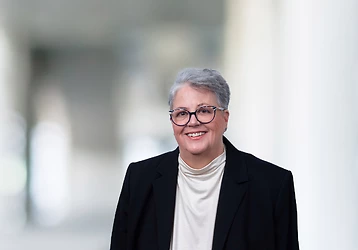EPA to Roll Back Emissions Standards: The Impact on Suppliers
On Monday, the Environmental Protection Agency (EPA) rolled back the Obama-era auto emissions standards for 2022 to 2025 model-year cars and light-duty trucks. At first glance, this appears to be a clear win for automakers, who have been complaining for years that the steep targets for fuel economy and emissions are not only costly, but also stifling to the American automotive market. While the political motivations and topics like the impact of these rollbacks on carbon dioxide (CO2) emissions will likely be debated over the coming weeks around water coolers, coffee stations in the office, and on countless media outlets, one of the most pressing questions that need-be answered is, what will the impact of these rollbacks be on the automotive supply base?
Through various supplier coalitions, like the Motor & Equipment Manufacturers Association (MEMA), the Manufacturers of Emission Controls Association, and The Advanced Engine System Institute, suppliers have made attempts to thwart the rollback of Obama-era emissions targets, as many recognize that they are likely to feel the economic-brunt of abrupt changes like these. Automakers have long-said that fuel economy and CO2 regulations drive rapid vehicle technology development. This notion has held true, especially over the last half-decade as vehicle light-weighting, down-size-boosted powertrain technologies, and thermal-system optimization (to name a few) have been the focus of many suppliers in the automotive space. Millions of dollars have been spent developing these, and other, technologies that are aimed to help achieve established EPA efficiency targets. The need and rush for this technology has helped to drive automaker spending, resulting in larger R&D budgets for suppliers, job creation at the supplier level, and the ability for suppliers to expand their capital and diversify their product portfolios. With these abrupt rollbacks, all of that progress may be at risk.
The position of the California Air Resources Board (CARB) must be taken into consideration. Board Chair Mary Nichols issued a statement late Monday that vehemently opposed the direction of the EPA, and noted, among other things, that California’s rules will remain in effect. That is, California and the 12 other states with clean car rules that “reduce emissions and improve gas mileage” will not be changing. Chairperson Nichols highlighted that California and the other 12 adopting states will continue to meet the high standards. For automakers, CARB’s position muddies the waters of what would have otherwise been a clear win. CARB’s position means that automakers cannot put a full-stop to development of vehicle technology, and this is good news for the automotive supply base. Keith Pruitt of the EPA did make a statement late Monday as well, however. He commented that a national standard, without state to state waivers, is in everyone’s best interest. Noting further, that California’s ability to set its own standards is “being reexamined”…
To add one more piece of confusion to this EPA rollback puzzle, the National Highway Transportation Safety Administration (NHTSA) fuel economy rules must also be considered. NHTSA operates under a different authority than the EPA, and is responsible for fuel-economy standards. On the same day that EPA announced the rollback of emissions standards, NHTSA published a Notice of Proposed Rulemaking (NPRM) essentially stating that the existing fuel economy rules would remain in effect and that the existing penalties would also continue to be enforced if corporate average fuel economy (CAFE) targets weren’t met. While NHTSA was determining whether or not to increase the CAFE fines and ultimately chose not to, the NPRM in no way rolls back existing fuel economy rules in the way that the EPA did with current emissions standards.
In addition to suppliers, CARB, and NHTSA taking either clear stances or actions counter to the EPA, individual states have been doing the same. In late 2016 and into 2017, more than 10 states have demonstrated opposition to either the process of the midterm review or to the rollback as a whole – including, Michigan, Maine, Maryland, Massachusetts, New York, Oregon, Rhode Island, Vermont, Washington State, Washington DC, and Wisconsin. These states, through their attorney generals, have committed to “vigorously oppose” the rollbacks on the basis of public health and environmental protection. As of Tuesday, it’s unclear how these states, and others, will be reacting to the actual rollbacks.
At Butzel Long, we work closely with our clients, as well as with trade organizations like MEMA, the Original Equipment Supplier Association (OESA), and LIFT Technology: Lightweight Innovations for Tomorrow (LIFT), to not only inform them of changing regulations that may drive potential negative business effects, but also to work with them to take preventative steps and help combat the economic impacts such governmental action may have on their businesses. We are also working in Washington to not only monitor changing regulations, but to proactively work to voice the concerns of our clients, and of the industry, to government leaders on Capitol Hill.
We recognize that our clients are the backbone of the automotive industry. We know that our clients push for new ideas, and work every day to develop new technology that will continue to shape the future of the industry by improving vehicle efficiency and changing the way consumers interact with their vehicles. At Butzel Long, we are committed to helping our clients have a voice in the face of these dramatic changes; to help them protect against dramatic shifts in the product development landscape; and to help them enforce their rights in intellectual property, contractual agreements, and regulatory reliance against infringers – the government included if necessary.
Please reach out to Mitch or Susan, or any other member of the Butzel Long team, with questions and let us know if we can help you monitor or navigate these changes in vehicle emission regulatory requirements.
Mitch Zajac
313.225.7059
zajac@butzel.com
Susan Johnson
248.258.1307
johnsons@butzel.com











